Nuclear war: The existential threat we don’t talk about.
We don't have to worry about the world ending in a nuclear holocaust anymore. Right? RIGHT?
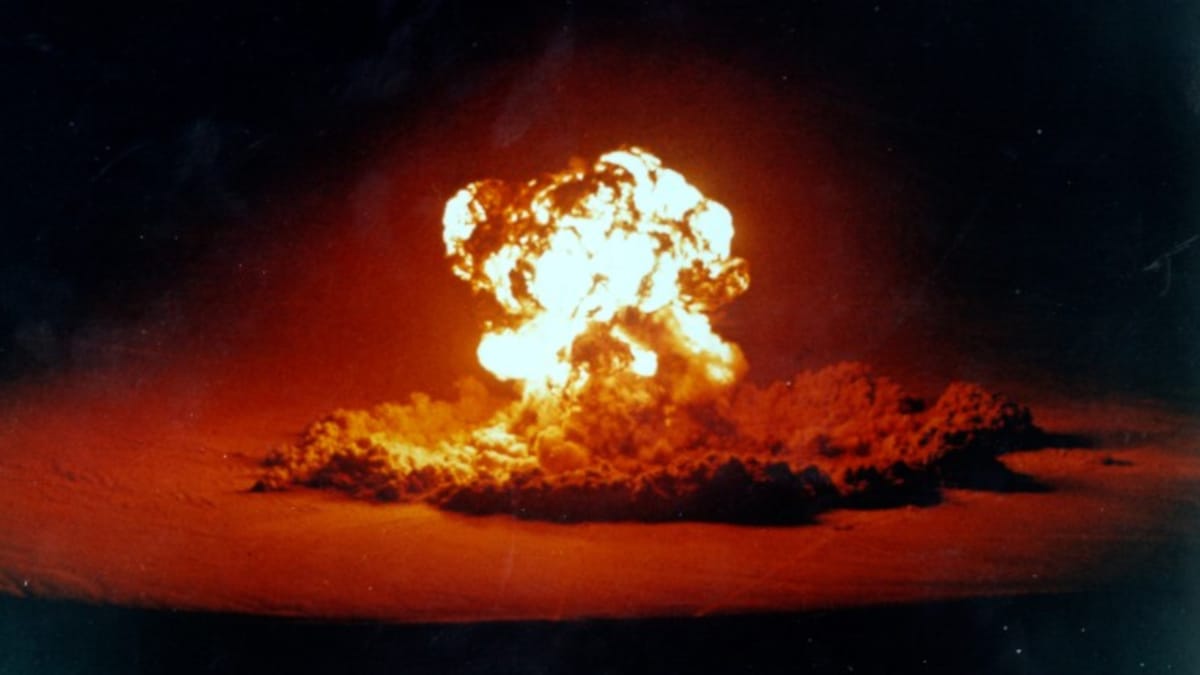
It’s mid-spring now, and in my 8th grade Modern World History class, as we do every March and April, we have arrived at the subject of the end of World War II, the Cold War and nuclear weapons. Teaching children about nuclear weapons is one of the more distasteful parts of my job, and it’s something they don’t prepare you for in graduate school. Nukes have also been on my mind recently for another reason, as a science fiction story idea I’ve been working on lately also involves nuclear war in an oblique way. In the 8th grade class we talk mostly about the subject in terms of how the bomb was invented—Oppenheimer and such—and how nuclear weapons dominated the Cold War between 1945 and 1990. After that, though, the subject mostly drops out of prominence. If you think about it, that’s a little strange. The prospect of nuclear war and global annihilation has never really gone away. It’s still with us, every day, every hour, but it’s something most of us choose not to think about. Today I’d like to spend some time thinking about it.
As most people know, nuclear weapons have been used in combat only twice in world history, on August 6 and 9, 1945, the American atomic bombings of Hiroshima and Nagasaki. The rest of the history of nuclear weapons has been about arms races and control of those races, deterrence, proliferation, diplomacy, and fears about who in the world—from nation-states to terrorists—might have them, or want them, or be trying to get them. The history of nukes can quickly turn cerebral and arcane, when we talk about high-level treaties and diplomacy, or psychology and deterrence. It can also devolve quickly into “technology porn” when one focuses on the specifications and how they actually work. You might even know what some of the many acronyms and buzzwords that surround the subject of nuclear weapons actually mean: MIRV, SALT, START, INF, ABM, Triad, etc. But few of these aspects really get at the existential heart of what the nuclear threat is, and what it means to us insignificant human beings.
I am Generation X. While we were growing up, particularly in the early 1980s when the Cold War was at its second peak, many, perhaps most, of my peers assumed that a civilization-terminating nuclear war between the United States and the Soviet Union was inevitable, only a matter of time. This inevitability was drilled into our heads by popular culture, such as the Nena pop song “99 Luftballoons,” or films like WarGames and the infamous 1983 TV movie The Day After. A girl at my high school, answering the puffball question “Where do you see yourself in ten years?” for the high school yearbook, replied, “I think the question should be if we will actually be here in ten years.” That was in 1989—the year the Berlin Wall fell. Many a surly teenager in the 1980s could be heard to complain something to the effect of, “Why do I need to learn algebra? We’re all going to get blown up in a few years anyway.” The internalization of eventual nuclear destruction was absolutely ubiquitous, at least in my experience.
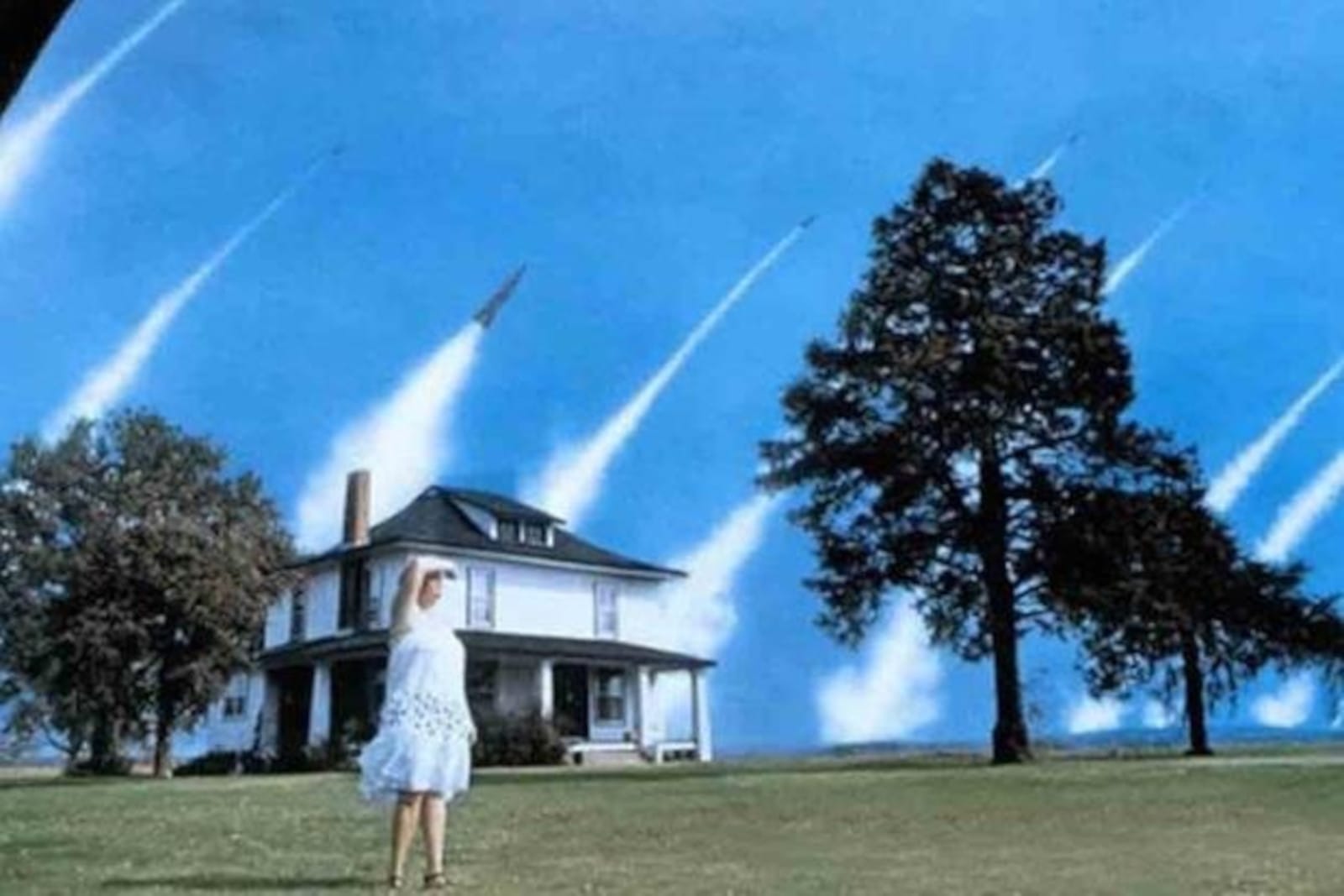
Mine wasn’t the first generation to live under this threat, nor the last. Try this for laughs: ask a Baby Boomer about the threat of nuclear war, then get out a stopwatch and count how many seconds it takes for them to start talking about how in grade school they were taught to crawl under their desks in “duck and cover” drills. Boomers love that story for some inexplicable reason. Today’s kids do duck and cover drills too, except the threat isn’t Soviet nukes but mad-dog school shooters with automatic weapons that nobody seems to want to do anything about because “muh freedom.” I don’t think younger generations have internalized the nuclear annihilation threat the way my generation did, but they certainly have considerable anxiety over the climate crisis—another existential threat we, as a society, have chosen to ignore. The idea of an irrational head of state “pushing the button” and nuking the world isn’t the thing in pop culture that it was in the 1980s or even the 1960s, and we’re now more than 20 years past the era when Dick Cheney and John Bolton were warning us about terrorists or rogue states threatening us with weapons of mass destruction. The traditional idea of nuclear war, as it was conceptualized most often in the Cold War era, has receded, supposedly.
But has it? The three major superpowers, the United States, Russia, and China, still possess vast stockpiles of nuclear weapons. Beneath them there’s sort of a second tier of nuclear powers which include India, Pakistan, Israel and North Korea. You still hear the madman-with-nukes fear invoked, particularly when one wants to demonstrate the general scariness of the idea of _______ (fill in the blank: Vladimir Putin, Kim Jong-un, Donald Trump or whoever is in charge of Iran this week) having “his finger on the button.” How persuasive is this argument in reality? Trump is demonstrably insane, but perhaps one saving grace about him is that, at least so far, he seems to have evinced little interest in war or international brinksmanship on a large scale. However enamored he temporarily becomes with drone strikes or long-distance assassinations, he seems to drop his interest in these things pretty fast, like a child dropping a toy to pick up a different one. As for Kim Jong-un, his pursuit of nuclear weapons, far from being the stuff of lunacy, seems highly rational. Since he got them, neither his number one enemy, South Korea, nor its patron the United States, have had any serious interest in attacking him. For this same reason I’m not generally impressed by the argument that “we” (who?) must prevent Iran from getting the bomb at all costs. Iran having nuclear weapons will, I think, make no real difference on the international scene.
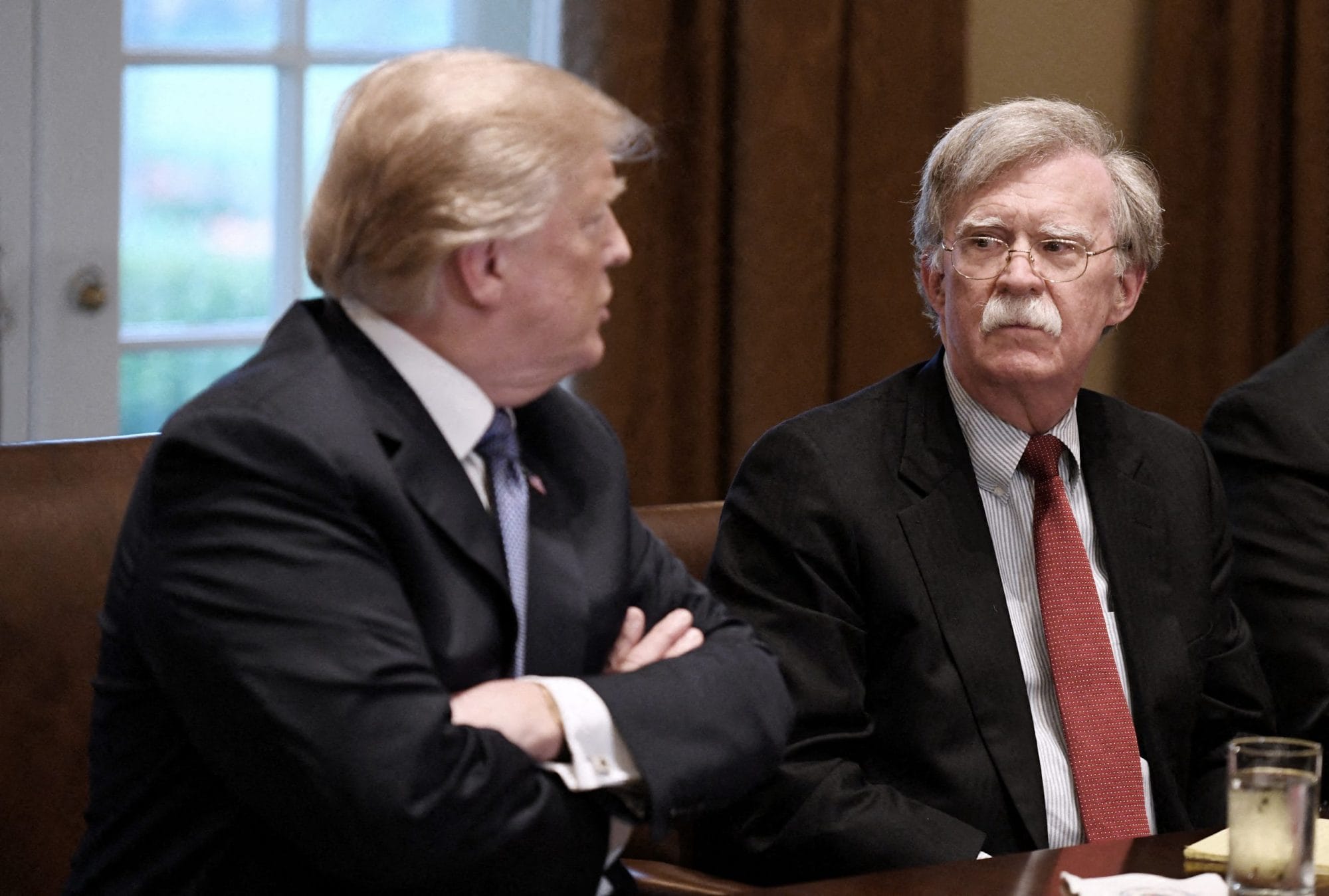
Perhaps we should be less afraid of supposed boogeymen who might get nukes in the future, and more of those who already have them and have for some time. And that includes us. Conflict with nuclear weapons is assumed to be likely to escalate quickly and reach a point of catastrophic results, including and especially for a potential nuclear aggressor; that’s the theory of MAD (Mutually Assured Destruction, an acronym my 8th grade students now know by heart). What if someone should decide to question that assumption? In my various columns on this blog about “my friend” Vladimir Putin, I’ve made the case that he doesn’t give a damn what happens to Russia after he’s gone, as evidenced by the marked lack of interest Putin has paid to the question of who will succeed him. Putin turns 73 this year. He has no throne to pass on to a child or protegé, and unlike Stalin, another Russian ruler who just didn’t give a damn, he has no revolution to defend or Party to keep intact. In his mind, the perceived costs of bluffing the West with nuclear weapons might be going down the older he gets and the more embroiled he becomes in wars like Ukraine, or his future targets (Poland, Moldova, the Baltic states etc.). Nuclear brinksmanship might become a realistic tool he’s willing to use to get his way.
The disintegration of the NATO alliance, a project Putin has been pursuing for years and which Trump is likely to complete in his second term, makes this kind of thing considerably more likely. In addition to the United States, two other NATO members, Great Britain and France, have nuclear weapons of their own. But if NATO is gone, or if Trump quits it and leaves it as a thin regional alliance among Western European countries, will it stand as a credible check to future aggression by Putin? It’s hard to imagine Keir Starmer or Emmanuel Macron pushing their own nuclear button to deter Putin from snatching Poland or Lithuania, especially if the United States doesn’t care. Maybe it would happen; maybe Putin would be willing to gamble that it won’t. Even outside the scenario of a massive bipolar nuclear exchange between superpowers, one single nuclear weapon used in combat, the third since 1945—whether used against London, Paris, Warsaw, Vilnius, Tehran or Taipei—would be sufficient to scramble what remains of the international order and bring us into a very dark era of renewed global conflict.
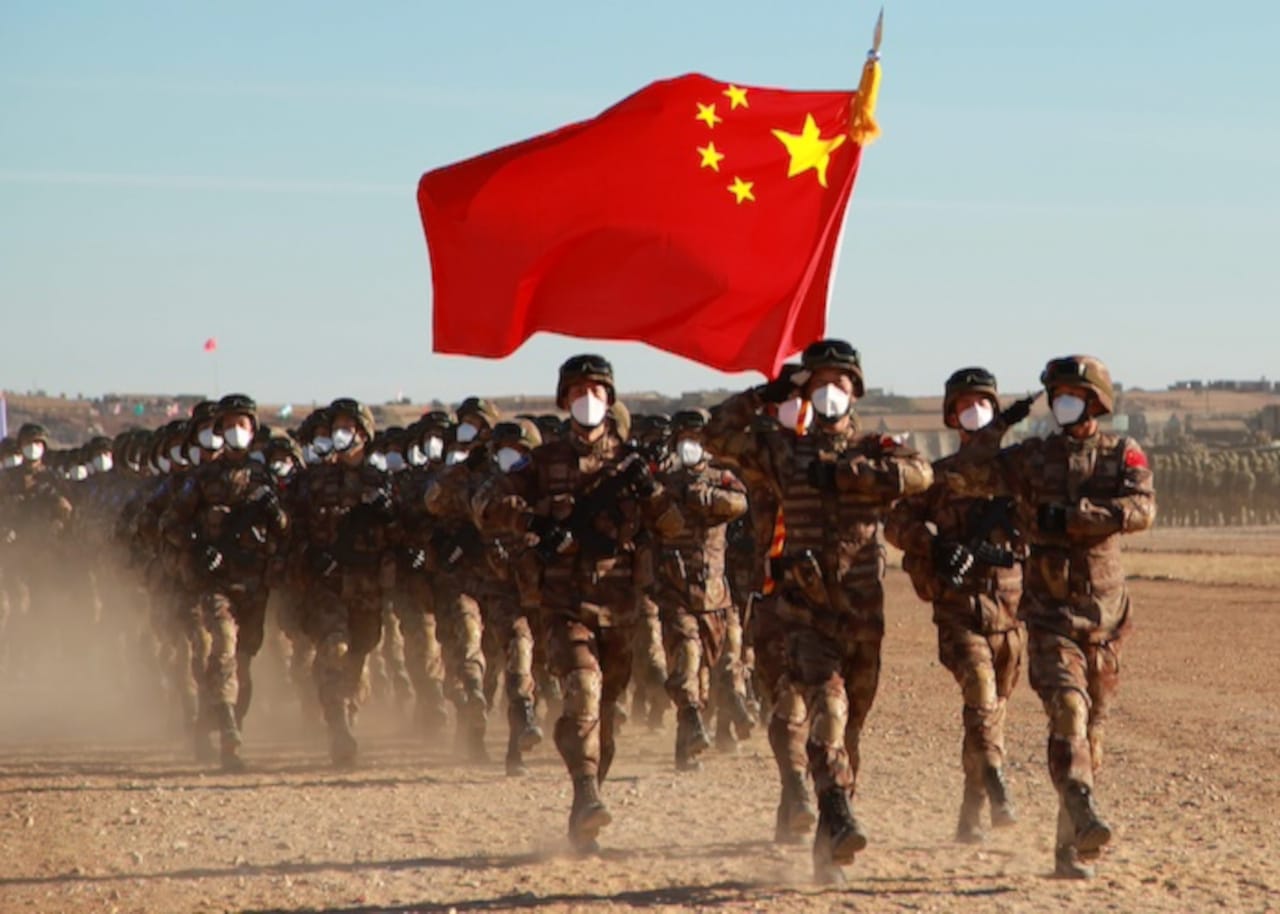
Putin isn’t the only person who might someday consider credible nuclear threats to be highly rational. One would have to be incredibly naïve to doubt that China has a plan worked out, probably for execution in this decade, to take over Taiwan. I guarantee that somewhere in that plan, perhaps its central feature, is a high-stakes dare: “Let us take Taiwan, or we’ll ______!” Fill in the blank. Crash the world’s economy might be a more credible potential fill-in than nuke Taipei, but whatever the dare is, the most likely answer to it has a radiation symbol painted on it and a yield measured in megatons. Forcing Americans to ask themselves, “Well, do we really care whether China takes over Taiwan?” is the key to China’s plan to succeed, and is probably why they will. But given how many American Presidents since 1949 have demonstrated this as a red line that red China dare not cross, somebody, somewhere, is going to think about nuclear weapons during the crisis that a move by China on Taiwan will inevitably trigger.
The world is used to dealing with nuclear weapons in a fairly rigid paradigm. A few superpowers have them, the thinking goes, but they’ll never use them, precisely because the other superpowers have them. It’s hard to dispute that this paradigm has kept nuclear war from breaking out for the past 80 years. That rigid paradigm, however, may not be as valid as it once was. Instability is increasing in the world, and it’s less and less useful to think of the world as a bi- or tri-polar system evenly balanced by the threat of nuclear destruction. If we confine our concerns about nuclear weapons to the old “madman with his finger on the button” or “terrorist/rogue state with a nuke” concepts, there’s a great deal about nuclear weapons that we may not see coming and may not know how to deal with. I don’t see a lot of people out there in the world thinking about this sort of thing. Maybe we should pay some attention to it, given the stakes are so high. But I think that too about global warming, so what the hell do I know?
The Value Proposition
Why should you be reading this blog, or receiving it as a newsletter? This is why.
☕ If you appreciate what I do, buy me a virtual coffee from time-to-time to support my work. I know it seems small, but it truly helps.
📖 You could also buy my newest book.
🎓 Like learning? Find out what courses I’m currently offering at my website.
📽 More the visual type? Here is my YouTube channel with tons of free history videos.


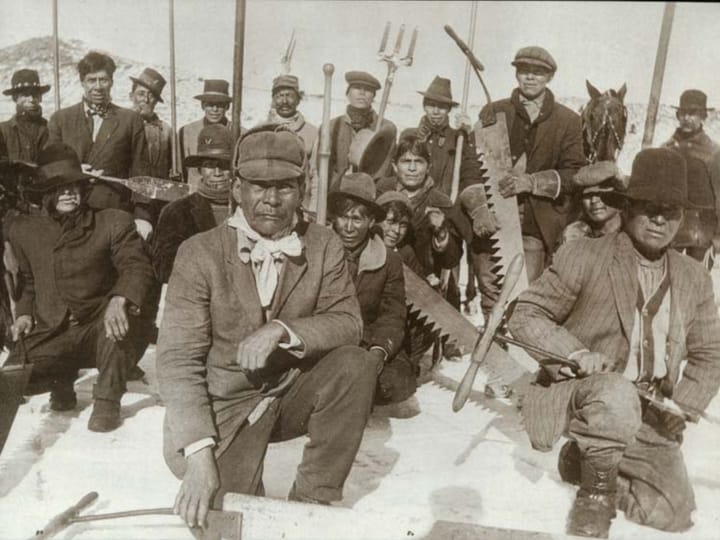
Comments ()